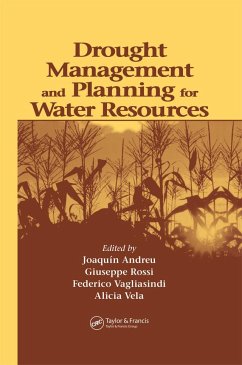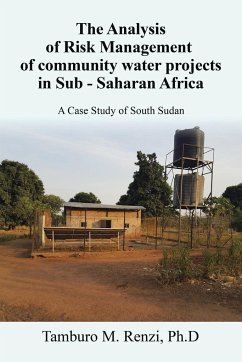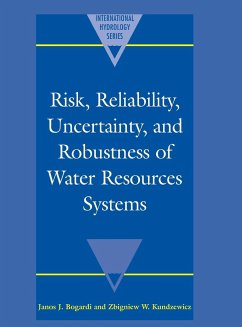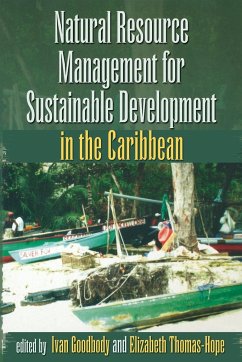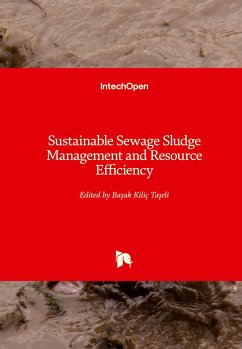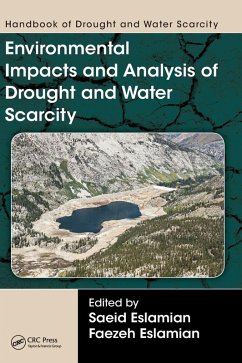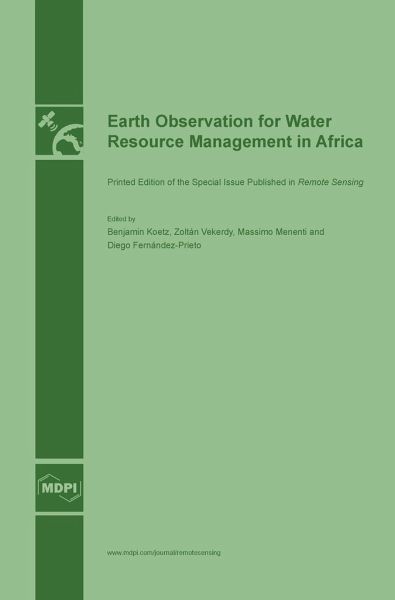
Earth Observation for Water Resource Management in Africa
Versandkostenfrei!
Versandfertig in 1-2 Wochen
151,99 €
inkl. MwSt.

PAYBACK Punkte
76 °P sammeln!
Reliable access to water, managing the spatial and temporal variability of water availability, ensuring the quality of freshwater and responding to climatological changes in the hydrological cycle are prerequisites for the development of countries in Africa. Water being an essential input for biomass growth and for renewable energy production (e.g. biofuels and hydropower schemes) plays an integral part in ensuring food and energy security for any nation. Water, as a source of safe drinking water, is furthermore the basis for ensuring the health of citizens and plays an important role in urban...
Reliable access to water, managing the spatial and temporal variability of water availability, ensuring the quality of freshwater and responding to climatological changes in the hydrological cycle are prerequisites for the development of countries in Africa. Water being an essential input for biomass growth and for renewable energy production (e.g. biofuels and hydropower schemes) plays an integral part in ensuring food and energy security for any nation. Water, as a source of safe drinking water, is furthermore the basis for ensuring the health of citizens and plays an important role in urban sanitation. The concept of Integrated Water Resource Management (IWRM) is seen as an opportunity to help manage water variability and the wide spread water scarcity in Africa. One key component missing from IWRM in Africa is the limited knowledge of the available extent and quality of water resources at basin level. Earth Observation (EO) technology can help fill this information gap by assessing and monitoring water resources at adequate temporal and spatial scales. The goal of this Special Issue is to understand and demonstrate the contribution which satellite observations, consistent over space and time, can bring to improve water resource management in Africa. Possible EO products and applications range from catchment characterization, water quality monitoring, soil moisture assessment, water extent and level monitoring, irrigation services, urban and agricultural water demand modeling, evapotranspiration estimation, ground water management, to hydrological modeling and flood mapping/forecasting. Some of these EO applications have already been developed by African scientists within the 10 year lifetime of the TIGER initiative: Looking after Water in Africa (http://www.tiger.esa.int), whose contributions are intended to be the starting point of this Special Issue and is only one example of the wide range of activities in the field. Contributions from the entire African and international scientific community dealing with the challenges of water resource management in Africa are the target of the special issue. In the years to come, an ever increasing number of international EO missions, such as the Landsat, ALOS, CBERS and RESOURCESAT mission suites, the family of Sentinel missions and the SMAP mission, will provide an unprecedented capacity to observe and monitor the different components of the water cycle. This Special Issue aims also at reviewing the latest developments in terms of new missions as well as related EO products and techniques that will be available in the near future to face some of the major challenges for IWRM in Africa.



